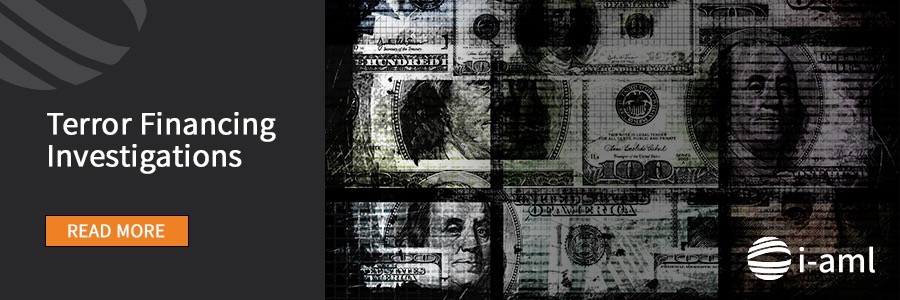The Russian cellist, the Chinese exchange student, and the 11-year-old son of an Azeri dictator. What binds this diverse set of characters together is that they’ve all allegedly been used by rich and powerful figures to hide assets from prying eyes.
Known as proxies, these people form a crucial part of a sophisticated secrecy industry that undermines the global financial system by letting dirty money flow undetected, unchecked, and uninterrupted around the world.
Here’s everything you need to know about how sanctioned oligarchs, crime bosses, and corrupt politicians, often abetted by financial industry professionals, are able to rely on friends, family, and business associates to disguise and protect their interests.
What is a proxy?
In business terms, a proxy, in some contexts also known as a “nominee,” is an agent acting on behalf of another person. Proxies come in many forms, but they are usually either a legal entity, such as a law firm or a shell company, or a person, such as a relative or confidant.
An Armenian man who was used as a proxy in the Troika Laundromat, uncovered by OCCRP in 2019.
Though closely associated with the shady world of offshore finance, proxies do sometimes serve legitimate purposes, such as casting absentee votes on behalf of known shareholders or providing specialist knowledge and guidance.
..
..
But according to Ben Cowdock, an investigator at Transparency International UK, such legitimate uses only account for “a tiny, tiny fraction of cases.” Generally, proxies are used to disguise a person’s ownership of assets or mask their involvement in certain business dealings — a function that can easily be abused.
“They are a major problem when it comes to financial crime, and very commonly used in money laundering and corruption schemes,” Cowdock says.
Not only does this erode the integrity of the global financial system, it can also pose a security threat, given the profile of illicit actors known to have used these arrangements, Cowdock says.
Why are proxies a problem?
Someone looking to hide illicit wealth — say, the proceeds of bribes or fraud — might start by putting this money into assets that don’t need to be registered by name, such as jewelry, gold, art, or cryptocurrency.
But that only gets you so far. Eventually, most people will want to spend their money on something they can use, such as yachts, private jets, or real estate. To do that, chances are they’re going to have to file some paperwork.
The simplest way to avoid putting an owner’s name on these official documents is often to register the asset under someone else. For instance, a Serbian drug lord buying a French villa with the proceeds of his narco-trafficking operations might list the asset in the name of a child, spouse, or trusted adviser to avoid attracting the attention of law enforcement.
Many jurisdictions also allow you to register a company under a so-called “nominee director.” This person’s name appears on the paperwork, often in return for a fee, but they don’t actually benefit from the company’s business dealings. Industry professionals and authorities differentiate between these nominal directors and a company’s “ultimate beneficial owner,” who is the person that actually benefits from the asset.
Nominee directors are often lawyers or other professionals and they can represent dozens, if not hundreds, of companies at once.
What are some techniques used to hide money behind proxies?
Many proxy schemes are highly complex.
“Layering” involves setting up multiple companies, each owned by another company, across multiple jurisdictions. Usually these jurisdictions are places where financial secrecy laws mean there is little to no public information about the interests behind the companies, such as Panama or the British Virgin Islands.
“We’ve seen cases of up to 23 layers of different legal vehicles before you even get to a natural person,” says Andres Knobel, lead beneficial ownership researcher at the Tax Justice Network.
Those who really don’t want anyone to come snooping might throw in “bearer shares” for good measure. This type of instrument does not even record the asset’s owner. Instead, ownership is assigned to whoever happens to be holding the physical document — meaning proxies can theoretically change with the swap of a briefcase.
Such techniques, often permitted by local legal frameworks and used in concert across multiple jurisdictions, can make it extremely difficult, even for trained and well-resourced investigators,to figure out who owns a given asset.
The effects of this can be seen across London’s real estate sector, for instance, where many multi-million dollar homes in glamorous neighborhoods like Mayfair, Knightsbridge, and Chelsea are owned by shell companies. In many cases, these companies have been traced to corrupt and high-level politicians from autocratic regimes.
When have proxies been used toward illicit ends?
As one of Russian President Vladimir Putin’s closest friends, Sergei Roldugin is perhaps the world’s most notorious cellist. In addition to his career in Moscow’s Philharmonic Orchestra, Roldugin has also controlled a colossal network of offshore firms implicated in multiple schemes linked to Russia’s elite.
In 2016, documents from the Panama Papers showed how companies nominally under Roldugin’s control had funneled billions in “donations” from Russia’s richest businessmen into palaces and investments.
The enterprising musician is far from the only alleged front for oligarchs’ interests. Piecing together clues from the Pandora Papers, another massive leak from offshore service providers, OCCRP identified a network of companies linked to Russian state lender VTB bank and its sanctioned owner Andrei Kostin — most of them nominally controlled by Eric Whyte, the son of a Canadian communist who grew up in the Soviet Union.
Sometimes, just one proxy just isn’t enough. When OCCRP uncovered a London property empire worth nearly $700 million associated with the family of Azeri dictator Ilham Aliyev, it took months of research and analysis to identify the 84 offshore companies that were behind it.
Among their owners and directors were not just members of the Aliyev family, including both of the president’s daughters and teenage son, but former tax ministry officials and their relatives.
Viewed individually, many of these companies, attached to obscure names, would raise few red flags. But leaked records showed how groups of them filed paperwork or changed directors — often chosen from among a small group of people — on the very same day. This helped reporters reach the conclusion the companies were a closely-knit system built for the Aliyev family’s benefit.
Skirting sanctions or avoiding negative publicity are not the only reasons to use proxies, however. In 2011, OCCRP’s Proxy Platform project exposed an underground system in Eastern Europe made up of hundreds of ever-morphing phantom companies, headed by proxies for organized criminals and corrupt officials from across the region. Among those entities were some that reporters traced to the massive tax fraud scheme uncovered by murdered Russian lawyer Sergei Magnitsky.
Are proxies always complicit in illicit schemes?
No. In fact, proxies are sometimes oblivious to the business empires that rise and fall in their names.
“Professional enablers” often recruit everyday people, many unfamiliar with the workings of the offshore financial system, who agree to have their names signed to companies or other assets for paltry sums.
Some cases are particularly blatant. Take Leticia Montoya, who was shown in the Panama Papers to have served for decades as director of thousands of companies, despite living in one of Panama City’s poorest neighborhoods and speaking little English.
Or Lu Z., a Chinese exchange student in New Zealand who was convicted for giving false addresses in 2010 after a shipment of North Korean weapons, possibly destined for Iran, was traced back to a firm she nominally controlled. Investigators later found she had agreed to be listed as director in exchange for just 20 New Zealand dollars (US$14.50 at the time).
In some cases, proxies appear to have been used entirely without their knowledge.
As part of the Suisse Secrets project, OCCRP tracked down a man in Pakistan who appeared to have held two high-value accounts at Credit Suisse. Living with his mother amid the rubble of a demolished house in Lahore, selling used clothes beside a sewage canal to get by, he was shocked to learn he was nominally a millionaire.
In his research in the U.K., Cowdock says he has seen “networks of notorious shell companies” use the same signatories again and again to launder “millions, if not billions, of pounds.”
“When those signatories were located, they were destitute people from the streets of Riga who’d given their names away one day,” he says.
Who makes this possible?
Illicit actors looking to set up such schemes find plenty of assistance from the legitimate legal and financial sectors. As Cowdock explains, “there’s an entire industry that’s been honing these techniques for decades now.”
This industry — which profits from managing and hiding dubious wealth — includes law firms, wealth managers, and other “offshore corporate service providers” ready to help secretive clients. In law enforcement circles, these actors are known as “professional enablers.”
Formation agents, for instance, are one key component. These companies exist solely to create other companies — and it’s no coincidence they’re exceptionally popular in tax havens and so-called “secrecy jurisdictions,” where corporate ownership is obscured.
What can governments do to increase oversight over proxies?
Interest in proxies has surged since Russia’s invasion of Ukraine, as the United States and European countries have moved to seize the assets of sanctioned Putin allies.
These countries have stepped up efforts to identify assets often hidden by proxies, including by forming the “Russian Elites, Proxies, and Oligarchs,” or REPO, task force to cooperate across borders. But both Cowdock and the Tax Justice Network’s Knobel argue that broader systemic change is needed.
Measures might include:
Expanding “beneficial ownership” registries. These are publicly available lists of who actually benefits from a company’s assets or dealings — not just who appears on its paperwork. More countries are adopting these, but there are still significant gaps in reporting requirements, data accuracy, and accessibility. And a recent ruling by the European Court of Justice has threatened to undermine much of the progress made in Europe.
Improving verification. Beneficial ownership registries only work if people don’t abuse them by providing false information. By allocating resources to routinely check given information, authorities can help ensure this is the case.
Axing “ownership declaration thresholds.” Many jurisdictions only require owners to declare themselves if they control a certain percentage of an asset. But that can open the way to further manipulation. “The moment you have a threshold, the moment you have someone rearranging their affairs to be below that threshold,” Knobel says.
Because of the international nature of this system, the solutions also need to be implemented at a global level to be effective. This is a big challenge, given that experts often argue that reform is expressly against the interests of the offshore secrecy industry.
“Until that happens,” Cowdock says, “we’re going to be vulnerable to illicit finance in whatever shape it may take.”
..
January 24, 2023 Published by The Organized Crime and Corruption Reporting Project.







